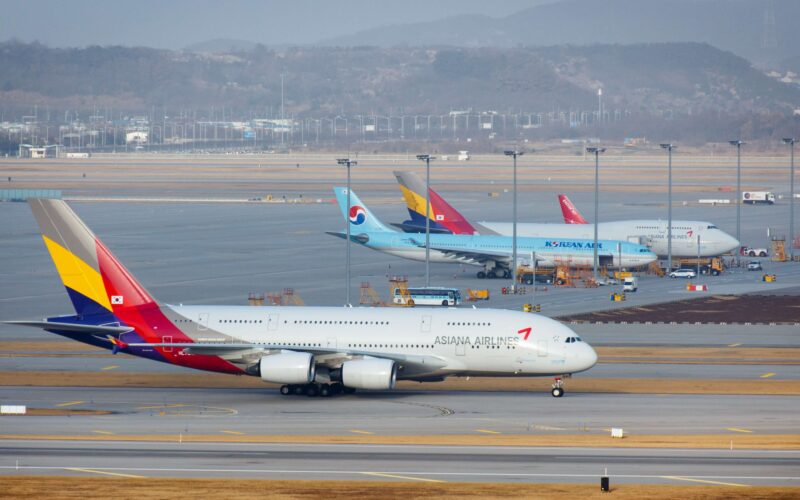The biggest South Korean airline Korean Air announced it would raise more money by selling its stock sales to finance the Asiana Airlines acquisition.
On January 22, 2021, Korean Air said that it would sell 3.3 trillion won ($3 billion) worth of new shares to finance the acquisition of cash-strapped Asiana Airlines. Initially, Korean Air planned to sell 2.5 trillion won ($2.3 billion) worth of stocks, reported the Yonhap News Agency.
On January 14, 2021, the South Korean Fair Trade Commission (FTC) and other foreign antitrust regulators received a business combination report from Korean Air regarding the acquisition of Asiana Airlines.
The business combination review is still under examination. If the business combination report is approved, Korean Air would be able to officially begin the process to acquire Asiana Airlines.
On January 6, 2021, the airline won the approval of the majority of its shareholders to sell new shares in order to finance the purchase.
“The main reason behind Korean Air’s decision to acquire Asiana Airlines at this time is to stabilize the Korean aviation industry, which is suffering from the Covid-19 pandemic,” a Korean Air spokesperson said in a statement on November 16, 2020.
Asiana’s integration into Korean Air would create a carrier that would operate around 60% of international routes in and out of the country. The consolidation could help both airlines to have a competitive advantage over rival international airlines. Additionally, the acquisition is expected to contribute in strengthening the competitiveness of Seoul’s Incheon International Airport (ICN), which aims to become the representative aviation hub in Asia, according to the airline.
However, Korea’s FTC and other fair competition authorities across the globe could challenge the merger, citing such a huge market share on the international market. Thus, it could be expected that Korean Air and Asiana Airlines would have to give up slots or traffic rights in ICN or other international airports.

